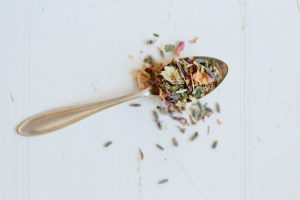The Naturopathic Co.

You're using an outdated browser. Please upgrade your browser to improve your experience.
SPEED READ>>
We could all do with an increase in antioxidant intake and a decrease in toxic load in order to improve wellbeing, energy, and prevent cellular damage. Different coloured foods contain different antioxidants, so it’s important to consume a variety of colour each day: the more unprocessed colour we consume at each meal, the better.
Foods that contain the highest antioxidant content by weight are goji berries, blueberries (wild), pecans, cranberries, blackberries, dark chocolate (80-100%), pomegranates, kidney beans, and herbs such as clove, cinnamon, oregano, turmeric, parsley, thyme, basil.
Antioxidants are crucial to maintaining good health. They help protect the body from free radicals, which although are normal components of cell metabolism, they should always be kept in check by antioxidants. If we consume too few antioxidants, then there is an imbalance in the number of free radicals causing DNA damage, oxidation, and accelerated aging.
This oxidation is dramatically slowed by the intake of antioxidants which mop up and neutralize free radicals. We could all do with an increase in antioxidant intake as a simple way to improve wellbeing, energy, and prevent cellular damage.
Different coloured foods contain different antioxidants, so it’s important to consume a variety of colours each day for balance and optimization of their protective effect. The best part is that it’s fairly easy to increase antioxidants at each meal.
Five servings of antioxidants daily is a good start, but the more unprocessed colour we can consume at each meal, the better. Some of the highest ranking antioxidant foods are goji berries, blueberries (wild), pecans, cranberries, blackberries, dark chocolate (80-100%), pomegranates, and kidney beans. Ranking of antioxidants is based on ORAC scores (Oxygen Radical Absorbance Capacity) which is a unit of measurement for antioxidant content introduced by the National Institutes of Health (NIH).
Herbs are also a highly nutritious source of antioxidants, so it’s best to include them in everyday cooking. Herbs such as clove, cinnamon, oregano, turmeric, parsley, thyme, basil all rate very highly on the ORAC score, but also provide multiple benefits such as immune-building, anti-parasitic, and anti-viral actions.
It’s important to note that preparation of vegetables also affects the antioxidants in them. Consuming raw vegetables maximizes antioxidant intake, and for some individuals this is a healthy way to improve intake. For people with digestive complaints, it is preferred to consume less raw foods. Steaming vegetables is the best option for optimal intake of antioxidants.
Minimum 5 serves of vegetables daily, the more the better (1 serve = approximately 1/2 cup)
Eat the rainbow at every meal
Consume berries as your primary source of fruit
Cook with herbs and spices
Avoid peeling fruit and vegetables when possible (highest nutritional component is closest to the skin)
Steaming is the preferred cooking method to retain the most nutrients
Juicing fruit and vegetables and preparing smoothies are great ways to intake antioxidants
Add olive oil to salads or cooked meals – but don’t heat the oil. Olive oil turns rancid at high heat, however it is extremely high in antioxidants, one of the primary reasons that the Mediterranean diet is such a success.
Incorporate high antioxidant nuts such as brazil nuts, pecans, almonds, and walnuts as snack options
Switch to dark chocolate which is often lower in sugar and higher in antioxidants flavonoids and polyphenols. 80-100% cacao is preferred.
In order to lessen oxidation, consider minimizing environmental toxic load by introducing HEPA air filters, open windows regularly to air the house, consider water quality filters, be mindful of purchasing non-toxic bedding and furniture, minimize chemical exposure in cleaning and food, minimize inflammatory foods (sugars, alcohol, refined and processed foods, hydrogenated oils and trans fats) and cook in quality non-toxic cookware.
Comments are closed.